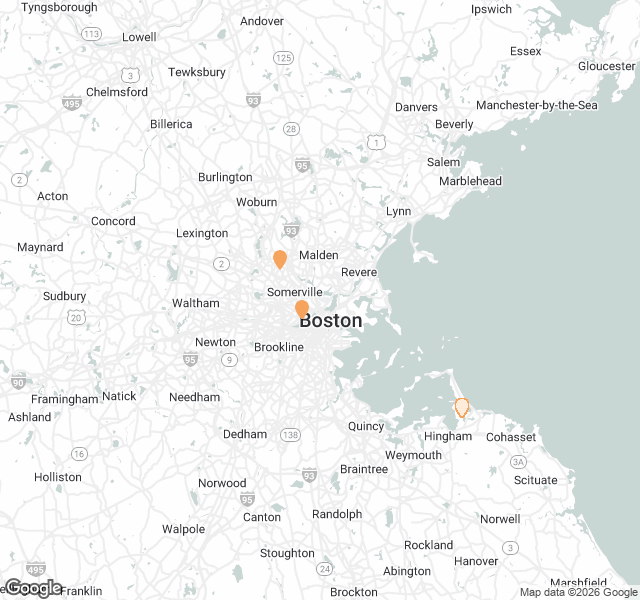How DirtMatch Works
Create a FREE Post
If you have excess dirt or fill, we'll match you with others in your area who need it. If you need dirt, we’ll match you with others who have dirt nearby. It’s that simple.
Connect with Matches
Once your DirtMatch post has matches, message your match directly on DirtMatch to finalize the details of your transaction: location, day/time, hauling etc.
Save Time & Money
You'll save thousands of dollars in disposal fees and trucking costs and countless hours by using DirtMatch to easily move your fill.
Free Fill Dirt in Boston
Dirt For Sale in Boston
No Dirt For Sale Found.
Check back later.
Dirt Dumpsites & Disposal in Boston
Dirt Haulers in Boston
-
Roadway Excavators Inc.
Manchester, NH
Pro Member -
Ira trucking corp
Malden, MA
Pro Member -
CJR Logistics
Worcester, MA
Pro Member -
Wetherbee Trucking
Webster, MA
Pro Member -
R.A. Sheehan Trucking, Inc.
Tewksbury, MA
Pro Member -
JW Investment & Dispatch LLC
Boston, MA
Pro Member -
JKrefta Trucking, LLC
Lexington, MA
Fill Dirt Suppliers in Boston
-
Express Wheels Services
Boston, MA
Pro Member -
F P Reilly and Sons, Inc.
Andover, MA
Pro Member -
Richmond Landscape Supply & Excavating
Plymouth, MA
-
The Dirt Doctors
Acton, MA
-
Granite Brook Materials
Weston, MA
-
Landscape Depot Supply
Framingham, MA
-
J & J Landscape Supply
Waltham, MA
-
AJ test
Sherborn, MA
-
McIntyre Loam
Hopkinton, MA
-
Rodenhiser Excavating
Holliston, MA
-
Landscape Express
Woburn, MA
-
My Mulch Man
Burlington, MA
-
Mass Mulch
Andover, MA
Fill Dirt Market in Boston
At Dirt Match, post data from our customers in Boston suggest that the fill dirt market is shaped by the city's historical urban development and coastal geography. Boston's dense urban landscape and extensive waterfront areas necessitate a constant demand for fill dirt, particularly for land reclamation, foundation stabilization, and flood prevention projects. The high demand within the city results in elevated fill dirt costs, especially as suitable dirt often needs to be sourced from further afield, contributing to higher transportation expenses. Surrounding areas like suburban Massachusetts and parts of New Hampshire can supply fill dirt, but logistics and transportation remain key factors influencing pricing.
Economically, our customers find that managing fill dirt costs in Boston requires meticulous planning and strategic sourcing. The city's unique needs for high-quality fill dirt, such as clay and loam, for urban infrastructure projects drive up prices, making timing and sourcing critical to cost management. Customers often ask "how much to dump fill dirt" as dump fees in Boston can vary widely depending on the volume and disposal site's proximity. For those looking to buy fill dirt or topsoil for sale, monitoring local listings and establishing connections with suppliers in nearby regions can help minimize transportation costs and ensure timely delivery. Effective management of these aspects is vital for reducing the overall economic impact on construction and landscaping projects in Boston.
Common Fill Dirt Questions in Boston
In our experience, the average price for fill dirt in Boston ranges from $20 to $35 per cubic yard, while topsoil costs between $30 and $50 per cubic yard. These prices can vary based on the quality of the soil and the supplier. Delivery fees typically add an extra $50 to $150 depending on the distance and volume of dirt needed.
We often see that Boston is characterized by a mix of sandy, clayey, and loamy soils. These soils can vary significantly in drainage capacity and fertility. Sandy soils drain well but may need more organic matter, while loamy soils are generally more fertile and easier to work with. Understanding your soil type is crucial for effective landscaping and gardening.
Yes, you typically need a permit for grading and excavation work in Boston. The city's Inspectional Services Department (ISD) requires permits to ensure that the work complies with local regulations and standards. You can apply for permits through the ISD's online portal or in person.
Based on recent data, renting a dump truck in Boston costs between $80 and $130 per hour, with additional fees for fuel and mileage. Some companies offer discounts for longer rental periods or larger projects, so it's worth contacting multiple providers to compare rates.
If you can't find a match on DirtMatch.com, you can dispose of dirt at local facilities such as the Boston Composting Facility, which charges around $25 per ton, or the South Hadley Landfill, with fees starting at $30 per ton. Be sure to check their guidelines for acceptable materials and any contamination restrictions.
Yes, Boston has specific regulations regarding soil use to prevent contamination and protect public health. It's important to ensure that the soil is free from pollutants and meets the Massachusetts Department of Environmental Protection (MassDEP) standards. Additionally, some areas may have zoning restrictions that dictate the types of soil that can be used.
For soil testing in Boston, you can contact the University of Massachusetts Amherst Soil and Plant Nutrient Testing Laboratory, which offers comprehensive soil analysis services. Private labs such as New England Testing Laboratory also provide testing services to assess nutrient levels, pH, and contaminants. These tests are crucial for ensuring your soil is suitable for gardening or construction.
We often recommend planning dirt-related projects during the spring or fall when the weather is mild. Boston’s hot, humid summers and cold, snowy winters can pose challenges, so scheduling your project in these favorable seasons can help ensure better working conditions and soil stability.
